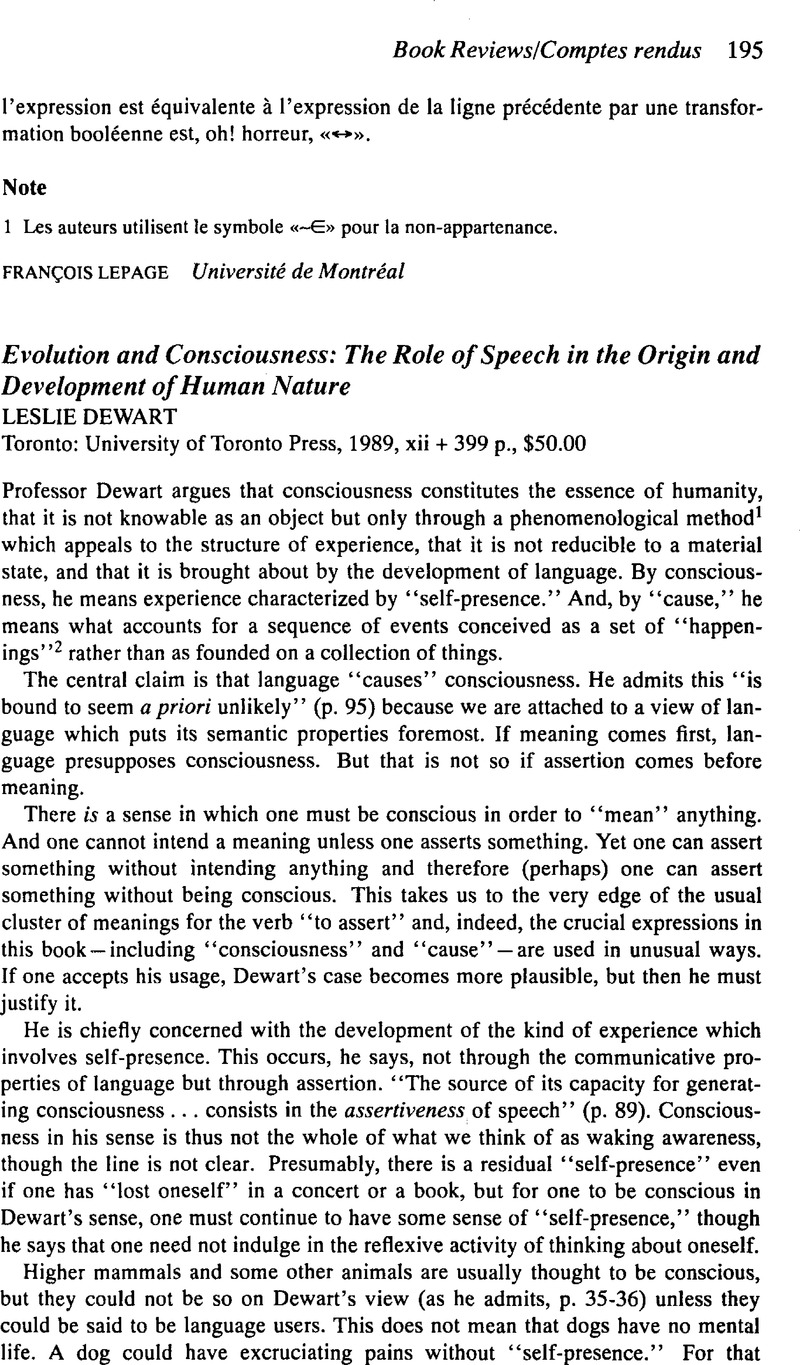No CrossRef data available.
Published online by Cambridge University Press: 13 April 2010

1 Dewart speaks of what “the jargon calls phenomenology.” He says its heart “is the attempt to subordinate the explanation to the explicandum more rigorously than our intellectual tradition has hitherto managed” (p. 10), and adds “phenomenology is at bottom no more and no less than a radical empiricism.” Such an empiricism includes the whole of experience, including its form and its field, not merely the objects in it. Husserl is not in Dewart's index. Heidegger appears three times, but it is not Heidegger's method which is at work, either.
2 “Happenings” are vital to the theological discussions (p. 312f.). Dewart thinks his position permits the ancient Hebrew world view.
3 Thus Dewart talks about “the essence of human life” (p. 14).
4 Hume also appears three times, but only on the idea of causality.
5 Foster, John, The Case for Idealism (London: Routledge & Kegan Paul, 1982)Google Scholar.
6 Putnam says that the object of his attack in Representation and Reality ([Cambridge, MA: MIT Press, 1988], p. xiii) is the functionalism which he formerly espoused, but he also takes aim at eliminative materialism.
7 Ibid., p. xiv.
8 Ibid., p. 117.